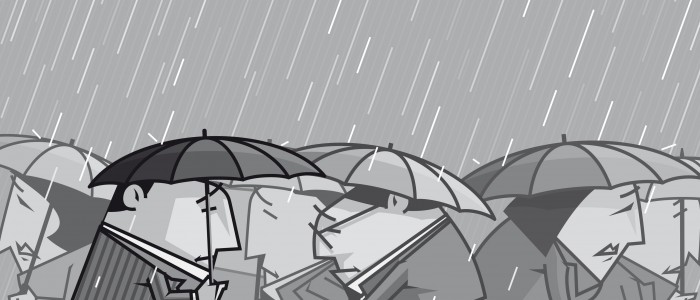Does Depression Ever Go Away?
“Does depression ever go away?”
My patients suffering from depression often ask if their condition will go away by itself over time. They also frequently inquire as to whether medication will be needed for a limited length of time or for a lifetime.
The answers can be very tricky, as there are a number of forms of depression, ranging from mild situational depression to the severe chronic variety. With mild situational depression there is some environmental trigger, such as a death, divorce or other negative life event that contributes to a feeling of sadness and/or hopelessness. While symptoms of depression such as problems with sleep, concentration and memory might occur, they are temporary. For example, recently much situational depression has come about as a result of the economy. Many people are out of work, and many are in danger of losing their homes as well as their livelihood. With this level of anxiety, mild depression is quite prevalent. Often, these people do not seek out professional treatment and their depression lifts over time, usually when they “accept” the life situation or the life situation improves. Some do seek out professional help. With appropriate medication and cognitive-behavioral psychotherapy the depression is usually alleviated in six to nine months.
However, with chronic depression, especially severe, the depression is of a physiological as well as psychological nature. In these cases, the triggers occur more often, the negative thoughts and feelings are more severe, and the person is far less able to function adequately. A person suffering from severe depression might also suffer from sleep deprivation, free floating anxiety, OCD and other symptomatic behavior patterns. Many of these people will have been hospitalized one or more times. Persons with severe depression of a chronic nature will most likely need to take medication indefinitely, usually for their entire life.
So, early differential diagnosis of depression is a most important first step in treatment. This diagnosis leads to an appropriate treatment regimen. With mild depression, especially situational, cognitive-behavioral therapy may be the only recommendation for treatment. With moderate to severe depression, with a physiological component, medication will be recommended, as well as individual and group therapy.
There also may be a family component to depression, either situational and environmental, or hereditary. A differential diagnosis will also assess the advent of such additional stressors and their contribution to the type and severity of the depression. In many cases, family treatment is also highly recommended to alter the toxic environment.
So, a simple question becomes complicated. Early adequate differential diagnosis will initiate the process of a proper comprehensive treatment paradigm, leading to decisions about how long depression might last and how long medication is recommended. As always, I continue to recommend the national DBSA website —DBSAlliance.org plus the many DBSA support groups to gather further information and learn of the experiences of others with similar questions and concerns.
Dr. Manuel S. Silverman, PhD


Comments are closed.